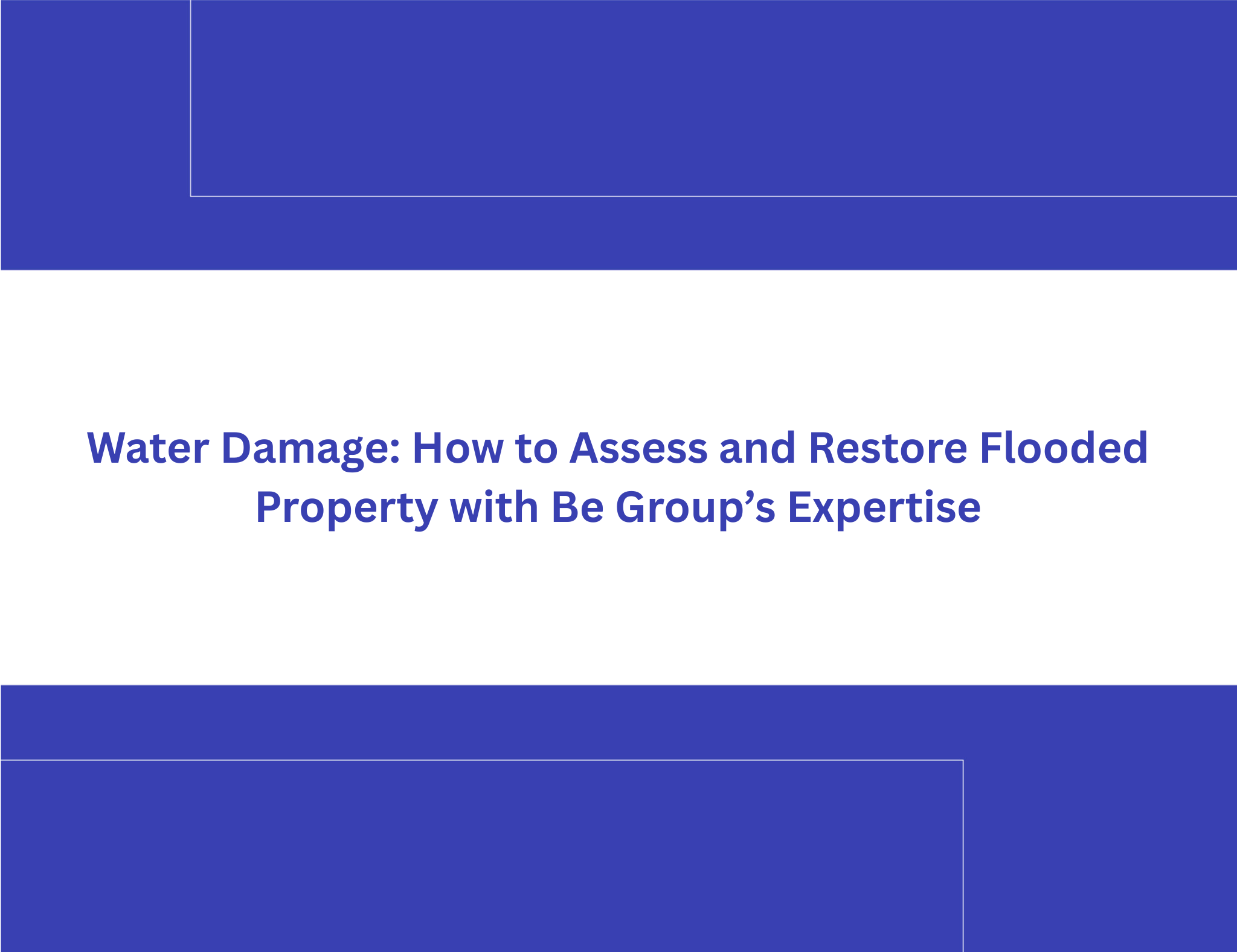Business Interruption Analysis: How to Assess Lost Profit and Operational Loss with Be Group
Business Interruption Analysis: How to Assess Lost Profit and Operational Loss with Be Group
The continuous operation of any business is vital to its success. However, unexpected incidents such as fire, flooding, natural disasters, major equipment failure, or supply chain disruption can halt or significantly hinder a company’s operations. In such cases, the business suffers not only property damage (damaged buildings, equipment) but also indirect financial losses—lost profits and ongoing fixed costs. Accurate and objective assessment of such losses is critical to securing insurance compensation and enabling rapid recovery. This is where Be Group becomes your trusted partner.
What is Business Interruption and Why is It So Impactful?
Business interruption refers to a situation where a company, due to an unexpected event, is unable to operate normally or must completely halt its operations. This is typically caused by property damage that disrupts production, sales, or service delivery.
Business interruption is particularly painful because:
- Revenue decreases or stops: Even though the business is not operating, expenses continue while income drops to a minimum or zero.
- Ongoing expenses persist: The company must still cover fixed costs (salaries, rent, loan payments, utility bills), increasing financial pressure.
- Loss of market share and reputation: Disrupted operations may lead to lost clients and reputational damage, causing long-term harm.
What Components Are Included in a Business Interruption Analysis?
Business interruption loss assessment requires a complex financial analysis that includes the following components:
Lost Profits:
This represents the profit the business would have earned had the incident not occurred.
The calculation considers:
- Historical data: Past sales figures, profit margins, and operational costs.
- Seasonality and trends: Seasonal cycles and market trends that may affect revenue.
- Projected profit: An estimation of the earnings the company would have made without the interruption.
Continuing Fixed Costs:
These are costs that continue during the business interruption, even when income is reduced or absent.
Examples include:
- Salaries: Retaining employees to ensure quick resumption of operations after recovery.
- Rent/Lease: Rent for premises, regardless of usage.
- Utility bills: Minimum utility costs (electricity, water) that are still generated.
- Loan servicing: Ongoing bank obligations.
- Insurance, licenses, subscription services, and other operational expenses.
Extra Expenses to Mitigate Loss:
These are reasonable and necessary expenses incurred to reduce the loss and resume operations as quickly as possible.
Examples include:
- Renting temporary production or office space.
- Hiring or urgently repairing damaged equipment.
- Expediting operations through overtime or additional resources.
Be Group’s Approach to Business Interruption Assessment:
- Detailed analysis of financial data: Our financial analysts and auditors thoroughly examine your accounting records, sales history, expense logs, contracts, forecasts, and other relevant financial documents.
- Industry and market research: We conduct in-depth research into industry trends, seasonality, competitive landscape, and other external factors that may impact the loss calculation.
- Expert conclusion: Our multidisciplinary team—including financial experts, engineers, and auditors—collaborates to deliver an accurate and comprehensive picture of the loss, both property and financial.
- Compliance with international standards: Our reports are prepared in accordance with international valuation standards, ensuring their reliability and acceptance by insurance companies worldwide.
Why Is an Independent Assessor Essential in Business Interruption Cases?
- Objectivity: An independent assessment eliminates conflicts of interest between the insurer and the insured, ensuring impartial and fair conclusions.
- Complexity: Business interruption analysis requires deep financial, accounting, and analytical knowledge, often beyond a company’s internal capabilities.
- Time savings: An accurate and comprehensive report from an independent expert significantly speeds up the insurance claim process and compensation timeline.
- Trust: Insurance companies place greater trust in independent assessments, simplifying negotiations and ensuring full compensation.
Be Group’s Advantages in Business Interruption Analysis:
- Highly qualified team of financial analysts and auditors: Our specialists possess up-to-date knowledge and hands-on experience in financial loss evaluation.
- Years of experience: Be Group has many years of experience analyzing business interruptions across various sectors in Georgia and internationally.
- Comprehensive and transparent reporting: Our reports are detailed, clear, and easily understood by insurance companies.
- Process simplification: We take full responsibility for the entire damage assessment cycle, making the process easier for our partners.
Business interruption is a major setback for any company, but accurately and objectively evaluating its financial consequences is key to a fast recovery. Be Group will help you assess lost profits and operational losses to secure the compensation you deserve and quickly resume operations. Our expert knowledge and years of experience ensure that your business is fully protected against unexpected disruptions.



